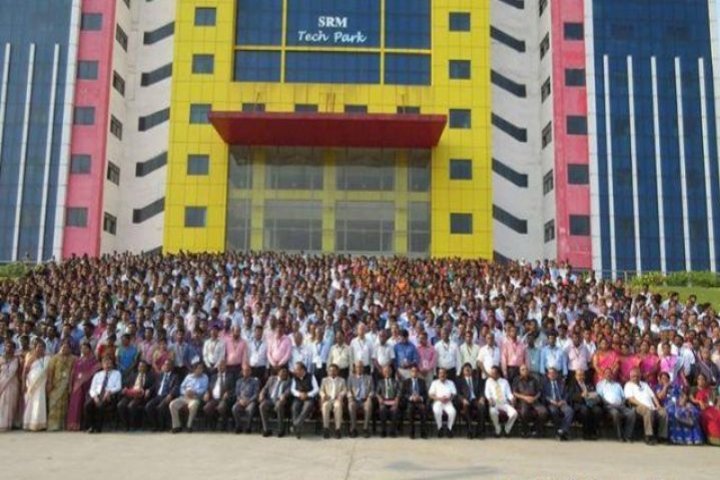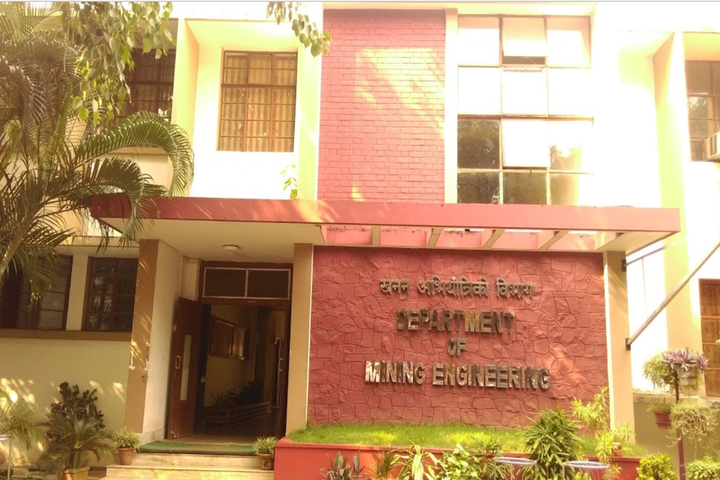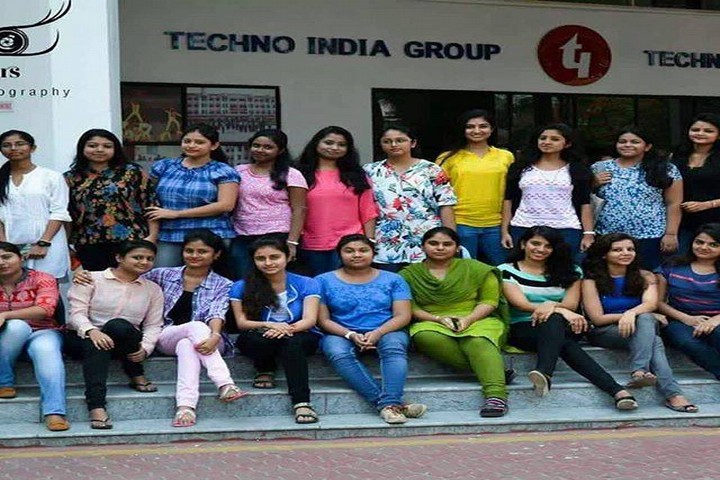
Agricultural Engineering Course Details - Fees, Subjects, Syllabus, Duration, Eligibility, Career Scope
Degrees offered: B.E /B.Tech, Diploma, M.E /M.Tech., Ph.D, BS
What is Agricultural Engineering
Agricultural Engineering is a branch of engineering that applies science and technology to farming. It focuses on improving agricultural productivity through modern equipment, irrigation systems, and eco-friendly solutions. The field combines innovation with sustainability to make farming more efficient and beneficial for both farmers and the environment.
Agricultural Engineering courses in India teach students about soil management, farm machinery, renewable energy, and precision farming. The syllabus blends theory and practical training to help students develop problem-solving skills. Popular programmes include B.Tech, BE, M.Tech, and Diploma in Agricultural Engineering, offering diverse learning opportunities in agricultural technology.
Over 350 colleges in India offer Agricultural Engineering courses at different levels. Graduates can find jobs in government departments, agribusiness companies, and research institutions. With the rise of smart farming and technology-based solutions, Agricultural Engineering has become a promising career option for students interested in sustainable agriculture.
Agricultural Engineering-Highlights
Agricultural Engineering is a multidisciplinary field that combines technology and science to improve agricultural efficiency. The course focuses on sustainable farming, modern machinery, and renewable energy use in agriculture. Students gain both theoretical and practical knowledge for diverse career paths. Below are key highlights of the course:
| Particulars | Values |
|---|---|
Degree Name | Agricultural Engineering |
Degree Type | |
Degree Duration | UG: Four years PG: Two Years |
Entrance Exams | UG: JEE Main, UPCET, CUET UG PG: GATE, CUET PG |
Eligibility Criteria | UG: 10+2 in the Science stream PG: Bachelor’s degree in B.Tech or a related field |
Admission process | Entrance Exam / Direct Admission |
Average Course Fees | Rs. 46,000 to Rs. 10 Lakhs |
Average Salary | Rs. 3.4 LPA (Agricultural Engineer) |
Job Profiles | Agricultural Engineer, Agricultural Scientist, Irrigation Engineer, Organic Agricultural Inspector, Environmental Engineer, Agribusiness Manager, Research and Development Officer |
Top Recruiters | ITC Limited, Nestle, Parle, Amul Dairy, Britannia, AgroTech Food, Pradan |
Specialisations or Similar Ones
Agricultural Engineering offers a variety of specialisations that help students gain expertise in specific areas of modern agriculture and technology. These specialisations focus on improving farm productivity, sustainable resource use, and advanced machinery systems. Some common specialisations in Agricultural Engineering include:
Farm Machinery and Power Engineering | Renewable Energy and Environmental Engineering |
Soil and Water Conservation Engineering | Agricultural Structures and Environmental Control |
Agricultural Process and Food Engineering | Dairy and Food Engineering |
Irrigation and Drainage Engineering | Precision Agriculture and Smart Farming Technologies |
Top Private Agricultural Engineering Colleges in India
Private colleges offering Agricultural Engineering in India provide quality education with modern infrastructure and advanced laboratories. Although their fees are generally higher than government institutions, they offer strong industry connections and placement support. Below are some of the top private colleges, along with their NIRF rank and fees:
| Top Colleges | NIRF Rank | Fees |
|---|---|---|
Kalasalingam Academy of Research and Education, Virudhunagar | 33 | Rs. 4.53 Lakhs |
Vignan's Foundation for Science, Technology, and Research, Guntur | 80 | Rs. 5 Lakhs |
151-200 | Rs. 3.40 Lakhs | |
201-300 | Rs. 4.40 Lakhs | |
201-300 | - | |
201-300 | - | |
201-300 | Rs. 4.20 Lakhs | |
201-300 | - | |
Rathinam Technical Campus Institute of Technology, Coimbatore | 201-300 | - |
201-300 | - |
Note: The fee structure provided above can be for any particular Agriculture Engineering Course (Diploma/ Degree).
Top Government Agricultural Engineering Colleges in India
Government colleges offering Agricultural Engineering in India provide affordable education with excellent academic standards and research opportunities. These institutions are well-funded and equipped with modern facilities to support practical learning. Admission is usually based on entrance exams or merit. Below are some of the top government colleges in India.
| Top Colleges | NIRF Rank | Fees |
|---|---|---|
5 | Rs. 46,750 | |
8 | - | |
32 | Rs. 9.43 Lakhs | |
101-150 | - | |
151-200 | Rs. 50,730 | |
151-200 | Rs. 66,700 | |
- | Rs. 1.40 Lakhs | |
- | Rs. 4.64 Lakhs | |
- | Rs. 2.39 Lakhs | |
- | Rs. 3.64 Lakhs |
Eligibility Criteria (UG & PG) of Agricultural Engineering
For every course, there are certain eligibility criteria that the candidate has to meet to be eligible for the respective course. To get admitted to the college of their choice, students must complete certain basic requirements. The following are the requirements for enrolling in an Agricultural Engineering programme.
Agriculture Engineering Eligibility Criteria for UG Courses
Candidates who seek admission in Agricultural Engineering courses at any university must fulfil certain eligibility criteria. This will help them to qualify for the university’s merit list. In contrast, these criteria may vary in certain aspects from university to university. Below are the general requirements for admission to the Agricultural Engineering UG courses:
- Candidates must have passed their 12th in the science stream with the compulsory subjects, such as Physics, Chemistry and Maths/Biology.
- They must score a minimum aggregate of 50 per cent marks.
- Students must also appear for the entrance examination to apply for the B.Tech Agricultural Engineering course.
Top Entrance Exams for UG Courses
Aspiring candidates must take an entrance exam as the initial step in their journey to start the programme. Qualifying for this exam is crucial, as it determines their eligibility to enrol in the desired course. Achieving success in the entrance exam opens the door to admission into prestigious institutions.
| Exam Name | Level | Conducting Body | Exam Schedule |
|---|---|---|---|
National | NTA | ||
National | NTA |
Agriculture Engineering Eligibility Criteria for PG Courses
Students who meet the eligibility requirements can apply for a Master’s degree in Agricultural Engineering to continue their studies in this field. Candidates must satisfy certain academic conditions set by each university. The detailed eligibility criteria are available on the official website of the respective college.
- Candidates need to have a Bachelor’s degree in Agricultural Engineering or a related discipline from a recognised institute.
- They must score a minimum of 60 per cent to be eligible for admission.
- Students must also appear and meet the cut-off of the GATE examination, which is a popular postgraduate engineering examination in India.
Top Entrance Exams for PG Courses
Admission to postgraduate courses in Agricultural Engineering relies on entrance exam scores. These exams assess candidates' aptitude in relevant fields and play a crucial role in determining admission to esteemed institutions offering specialised programmes. Details regarding these exams are furnished in the table below:
| Exam Name | Level | Conducting Body | Exam Schedule |
|---|---|---|---|
National | IITs | ||
National | NTA |
College Predictors VIEW ALL
Scope of Agricultural Engineering in India and Abroad
Agricultural Engineering offers a wide scope in India and abroad, as it plays a key role in improving farming efficiency, sustainability, and food production. Graduates can work in areas such as farm mechanisation, irrigation systems, food processing, research, and environmental conservation. The field also provides opportunities in both government and private sectors.
According to a NITI Aayog report, the requirement for agricultural inputs like machinery, fertilisers, and technology-based solutions is expected to increase significantly by 2025–26. This rise will create more opportunities for agricultural engineers in fields such as farm mechanisation, soil and water management, and renewable energy applications in agriculture.
Course Fees Agricultural Engineering
| Minimum Fees | Maximum Fees | |||
|---|---|---|---|---|
| Private | Government | Private | Government | |
| UG | ||||
| PG | ||||
| DOCTORAL | ||||
| DIPLOMA | ||||
Course Subjects
The syllabus of Agricultural Engineering covers a wide range of subjects related to farming technology, machinery, soil management, and renewable energy. It helps students build both theoretical and practical knowledge essential for the agriculture sector. Below are the syllabus structures for both the UG and PG levels.
Agricultural Engineering Syllabus for UG Courses
The syllabus of the Agricultural Engineering undergraduate programme is structured over four years and consists of both electives and core courses. The course curriculum combines both practical and theoretical knowledge of the field. Mentioned in the table below is the syllabus of the B.Tech Agricultural Engineering course from Uttar Banga Krishi Viswavidyalaya.
Semester 1 | Semester 2 |
Engineering Mathematics - I | Engineering Mathematics – II |
Engineering Physics | Computer Programming and Data Structures |
Engineering Chemistry | Applied Electronics and Instrumentation |
Workshop Practice | Agriculture for Engineers |
Surveying and Levelling | Workshop Technology |
Engineering Drawing | Thermodynamics and Heat Engines |
Environmental Science | Field Operation and Maintenance of Tractors and Farm Machinery – I |
Electrical Circuits | Engineering Mechanics |
English and Communication Skills | - |
Semester 3 | Semester 4 |
Engineering Properties of Biological Materials and Food Quality | Farm Machinery and Equipment – II |
Soil Mechanics | Irrigation Engineering |
Soil and Water Conservation Engineering | Crop Process Engineering |
Farm Machinery and Equipment – I | Fluid Mechanics |
Farm Power | Theory of Machines |
Watershed Hydrology | Heat and Mass Transfer |
Engineering Mathematics - III | Field Operation and Maintenance of Tractors and Farm Machinery – II |
Agribusiness Management and Trade | Advanced Computer Science and Engineering |
- | Fundamentals of Probability and Statistics |
Semester 5 | Semester 6 |
Machine Drawing and Computer Graphics | Agricultural Structures and Environmental Control |
Machine Design | Drying and Storage Engineering |
Dairy and Food Engineering | Design of Structures |
Tractor Systems and Controls | Drainage Engineering |
Electrical M/C’s and Power Utilisation | Soil and Water Conservation Structures |
Database Management and Internet Applications | Refrigeration and Air Conditioning |
Strength of Materials | Entrepreneurship Development |
Ground Water, Wells and Pumps | Renewable Energy Sources |
Semester 7 | Semester 8 |
Project – I | Project – II |
In-Plant / Industrial Training – I | In-Plant / Industrial Training – II |
Agricultural Engineering Syllabus for PG Courses
The postgraduate course in the field of Agricultural Engineering introduces the students to advanced topics in the Agricultural and Technology domain. Students learn in-depth about the same. In the table below, we have mentioned the M.Tech Agricultural Engineering syllabus.
Semester 1 | Semester 2 |
Design and Testing of Farm Power Systems | Design and Testing of Farm Machinery Systems |
Soil Dynamics in Tillage and Traction | Recent Advances in Farm Machinery and Power Engineering |
Programme Elective – I | Programme Elective – III |
Programme Elective – II | Programme Elective – IV |
Research Methodology & IPR | Audit Course – 2 |
Audit Course – 1 | Farm Machinery Design and Testing Lab |
Farm Power Design and Testing | Advanced Farm Machinery and Power Lab |
Soil Dynamics Lab | Mini Project |
Semester 3 | Semester 4 |
Programme Elective – V | Dissertation Phase – II |
Open Elective | - |
Dissertation Phase – I | - |
Careers in Agricultural Engineering
Agricultural Engineering offers various career opportunities in government departments, agribusiness companies, research institutes, and environmental organisations. Graduates can work in areas like irrigation, farm machinery, food processing, and sustainable farming technologies. Below are some of the popular job roles in the field of Agricultural Engineering:
| Job Roles | Description |
|---|---|
Agricultural Engineers design and improve farm equipment, irrigation systems, and renewable energy solutions. They ensure efficiency and sustainability in modern farming practices. | |
Agricultural Scientists study crops, soil, and farming methods to enhance productivity. They develop innovative solutions for sustainable agriculture and food security. | |
Agriculture Officers implement government schemes and support farmers in adopting modern farming techniques. They also monitor agricultural progress and provide expert guidance to improve yield. | |
Irrigation Engineers | Irrigation Engineers design and manage water systems for efficient crop irrigation. They help conserve water and improve agricultural output. |
Agricultural Inspectors inspect farms, food processing units, and storage facilities to ensure compliance with safety and quality standards. They help maintain agricultural product quality and enforce government regulations related to farming and food production. | |
Environmental Engineers focus on eco-friendly agricultural solutions and waste management. They develop sustainable systems to reduce pollution and protect natural resources. | |
Agribusiness Managers | Agribusiness Managers oversee the production, sales, and marketing of agricultural goods. They manage operations to improve profitability and business efficiency. |
Research and Development Officers | Research and Development Officers create and test new farming technologies and equipment. They work to modernise agricultural systems and increase productivity. |
Upcoming trends
Agricultural Engineering, a vital branch of engineering, is witnessing a rapid transformation with the advent of new technologies. This field, which traditionally focused on improving agricultural productivity and farming methods, is now embracing modern innovations that enhance efficiency and promote sustainable, eco-friendly practices.
- Internet of Things (IoT)- Used for real-time monitoring of crops, soil, and weather through connected smart sensors.
- Agri Drones- Assist in precision farming by mapping, spraying, and monitoring crop growth.
- Artificial Intelligence (AI)- Helps in predicting yields, detecting diseases, and improving farm decision-making.
- Big Data Analytics- Analyse agricultural data for accurate forecasting and better resource management.
- Indoor Farming and Soilless Agriculture- Promotes hydroponics and vertical farming to grow crops efficiently in limited spaces.
- High-Efficiency Irrigation Systems- Ensures smart water management through drip and micro-irrigation technologies.
Job Profiles and Top Recruiters
After completing an Agricultural Engineering course, graduates can explore careers in the agriculture industry, research institutes, educational institutions, and environmental management sectors. Many colleges also offer campus placements through dedicated placement cells, connecting students with leading employers. Mentioned below are some of the top recruiters in the Agricultural Engineering field.
Top Recruiters
- ITC Limited
- Nestle
- Parle
- Amul Dairy
- Britannia
- Proagro Seeds
- AgroTech Food
- Farming Industry Consultants
- Pradan
Average Salary
The average salary in Agricultural Engineering depends on factors such as academic qualification, skill level, and professional experience. Graduates working in government organisations, private firms, or research sectors receive competitive pay packages that increase with expertise and responsibility. Below are the average salaries for different positions in the Agricultural Engineering field:
| Job Roles | Average Salary (LPA) |
|---|---|
Agricultural Engineers | Rs. 3.4 LPA |
Agricultural Scientists | Rs. 20.1 LPA |
Agriculture Officers | Rs. 4.7 LPA |
Irrigation Engineers | Rs. 3.8 LPA |
Agricultural Inspectors | Rs. 2.9 LPA |
Environmental Engineers | Rs. 4.9 LPA |
Agribusiness Managers | Rs. 6 LPA |
Research and Development Officers | Rs. 4 LPA |
Source: AmbitionBox and Glassdoor
Required Skillset for Agricultural Engineering
Agricultural Engineering deals with developing infrastructure and technology to enhance productivity and sustainability in the agricultural sector. It covers areas such as machinery design, irrigation systems, soil conservation, and renewable energy use in farming. The course requires students to be analytical, creative, and technically skilled. Some of the essential skills include:
- Problem-solving skills
- Technical and analytical skills
- Mathematical and computational ability
- Time management
- Communication and teamwork skills
- Project management
- Critical thinking
- Innovation and design aptitude
Course Curriculum for Agricultural Engineering
The Agricultural Engineering course curriculum combines engineering principles with agricultural science to improve productivity and sustainability. It covers subjects like soil mechanics, irrigation engineering, farm machinery, renewable energy, and food processing technology. Students gain both theoretical and practical skills required for modern and sustainable agricultural development.
At the postgraduate level, the syllabus focuses on precision farming, automation in agriculture, climate-smart techniques, and resource management. Learners undertake research projects, laboratory sessions, and industrial training. The curriculum aims to develop skilled professionals capable of designing innovative solutions to meet the challenges of today’s agricultural industry.
Popular Agricultural Engineering Entrance Exams in India
JEE Main
Application Process: 01 Feb, 2026 - 25 Feb, 2026
GATE
Exam Date: 14 Feb, 2026 - 15 Feb, 2026
JEE Advanced
Application Process: 06 Apr, 2026 - 02 May, 2026
COMEDK UGET
Application Process: 03 Feb, 2026 - 16 Mar, 2026
GPAT
Exam Date: 07 Mar, 2026
Frequently Asked Questions (FAQs)
Question: What are the career prospects after completing the course?
Answer :
Graduates can pursue various careers such as agricultural engineer, irrigation engineer, soil and water conservationist, farm equipment designer, food processing engineer, environmental consultant, and more.
Question: Are there any prerequisites for enrolling in the course?
Answer :
Prerequisites vary by institution, but generally, a background in science subjects such as mathematics, physics, and chemistry is required. Some institutions may also require specific entrance exams or prior coursework in related fields.
Question: What is the duration of the Agricultural Engineering course?
Answer :
The duration of the course typically ranges from 3-4 years for a bachelor's degree. Master's programmes usually take 2 years, and doctoral programmes can take 3-5 years to complete.
Question: Is the course available online or in person?
Answer :
The course is primarily offered in person due to the practical and lab-based components. However, some institutions may offer hybrid or online options for certain parts of the curriculum, especially theoretical modules.
Question: What does the Agricultural Engineering course cover?
Answer :
The course covers a range of topics including soil and water conservation, agricultural machinery, irrigation systems, food processing, agricultural structures, renewable energy, and environmental sustainability in agriculture.
Questions related to Agricultural Engineering
Sir me 2019-20me 12th ag 60.66% he pass kiya hu hu mujhe BSC me admission mil Jayega kya Mansharam Dawar 9754878498
Hello,
Yes, if you have passed Class 12 with 60.66% marks, you can get admission in a B.Sc course.
However, admission depends on the college’s cut-off marks and subject requirements .
You can apply to Mansharam Dawar College . If the college requires only passing marks or around 50–55% for
Can I get bams in private college govt quota with rank of 4,02,936 in 2025 at obc 2AG category tell anyone please can you plz suggest the anyone college with lower ranking my marks is 315
You have better chance in private colleges and managemement quota seats.
Participate in the state level AYUSH counselling conducted by the KEA and list your preferences for private colleges offering BAMS.you might get good colleges.
Here is some colleges to consider like Aroor Laxminarayana Rao Memorial Ayurvedic Medical College in
BSC Ag me admission ho jayega kya sir
Hello Abhishek!
Yes, you can definitely get admission into b.Sc. agriculture if you meet a basic eligibility criteria. You need to complete intermediate (10 + 2 ) with maths, physics and chemistry or biology, physics, chemistry from a recognised board that is the main requirement.
Then you may need to
what will be my category if i am a reserved candidate as snq ,hyd-kar, and also as MM1 religious minority like what will be it example 1AG ,etc.
In Karnataka CET/COMEDK counseling, your base category will be shown first (like GM, 1G, 2AG, 3BG, SCG etc.). If you are eligible for Hyd-Kar region, it will be added (e.g., 2AG-HKR). If you belong to a religious minority (MM1), that is also included (e.g., GM-MM1, 1G-MM1). For SNQ quota, it
Hi actually what is the cut off of the AI AND MACHINE LEARNING course in RAGHU COLLEGE I want to know please ....
Hello student,
The exact cutoff marks for the AI and Machine Learning course at Raghu Engineering College are not available publicly.
However, the college accepts AP EAPCET (formerly EAMCET) scores for admissions. The cutoff varies each year and depends on factors like the number of applicants and their performance.
For












.jpg)

 Answer later
Answer later









